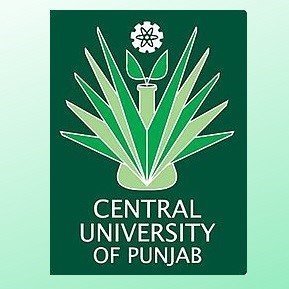Central University of Punjab pays tribute to Sundarlal Bahuguna
Bathinda: The Dept. of Botany at the Central University of Punjab, Bathinda (CUPB) celebrated U.N. International Day for Biological Diversity with a tribute to the great Indian environmentalist and founder of Chipko Movement, Shri Sunderlal Bahuguna, who recently passed away.
Prof. Raghavendra P. Tiwari, Vice-Chancellor of Central University of Punjab, highlighted numerous grassroots level contributions that Padma Vibhushan Sunderlal Bahuguna has made lifelong to promote environmentalism in the country. Prof. Tiwari added that Shri Sunderlal Bahuguna’s environmental activism emphasized the conservation of biological resources of the country that are diminishing due to destruction of natural habitats, deforestation, environmental degradation, climate change and poaching. As four of the world’s 36 biodiversity hotspots are situated in India, our country harbours a vibrant biological diversity, and it is our collective responsibility to preserve nature by adopting sustainable lifestyle, he added. Prof. Tiwari also highlighted the importance of afforestation and highlighted the efforts that Central University of Punjab has been making in this direction. A well-planned heritage garden, “Griha, Nakshatra and Rashi Vatika”, has recently been inaugurated on the campus. Central University’s campus at Village Ghudda has 500-acres of lush green lands that houses more than 40,000 trees that the university is committed to preserve. Additionally, University is still planting commercial and fruit-bearing plants for enriching biodiversity in the campus. The campus also has rich biodiversity with wild rabbits, nilgais and monitor lizards. University’s Botanical Garden, supported by a major grant from Ministry of Environment and Forests, is currently under landscaping.
The Invited speaker of the programme was Dr. Manoj Prasad, Scientist VII, NIPGR, New Delhi. He delivered a talk on the topic ‘Feeding the 10 Billion: A Genomics perspective’. In his address, he emphasized the importance of preserving and cultivating neglected crops, especially finger millets. Humanity has an exceptionally long history with the cultivation of millets that predates rice by more than 4000 years. Millet is a nutritional powerhouse with complex polysaccharides and proteins and has been part of India’s rich traditional food culture for thousands of years. However, the current fancy with fast food culture and white rice has completely overshadowed this superfood. The program also included an International Quiz Competition, with more than 1500 participants all over the world. Questions were on the theme “Biodiversity: We’re part of the solution”. Abhijit Nayak, Bharti, Deepak Das won first, second and third positions, respectively. Prof. Tiwari as well as Dr. Prasad congratulated all the winners as well as participants.

